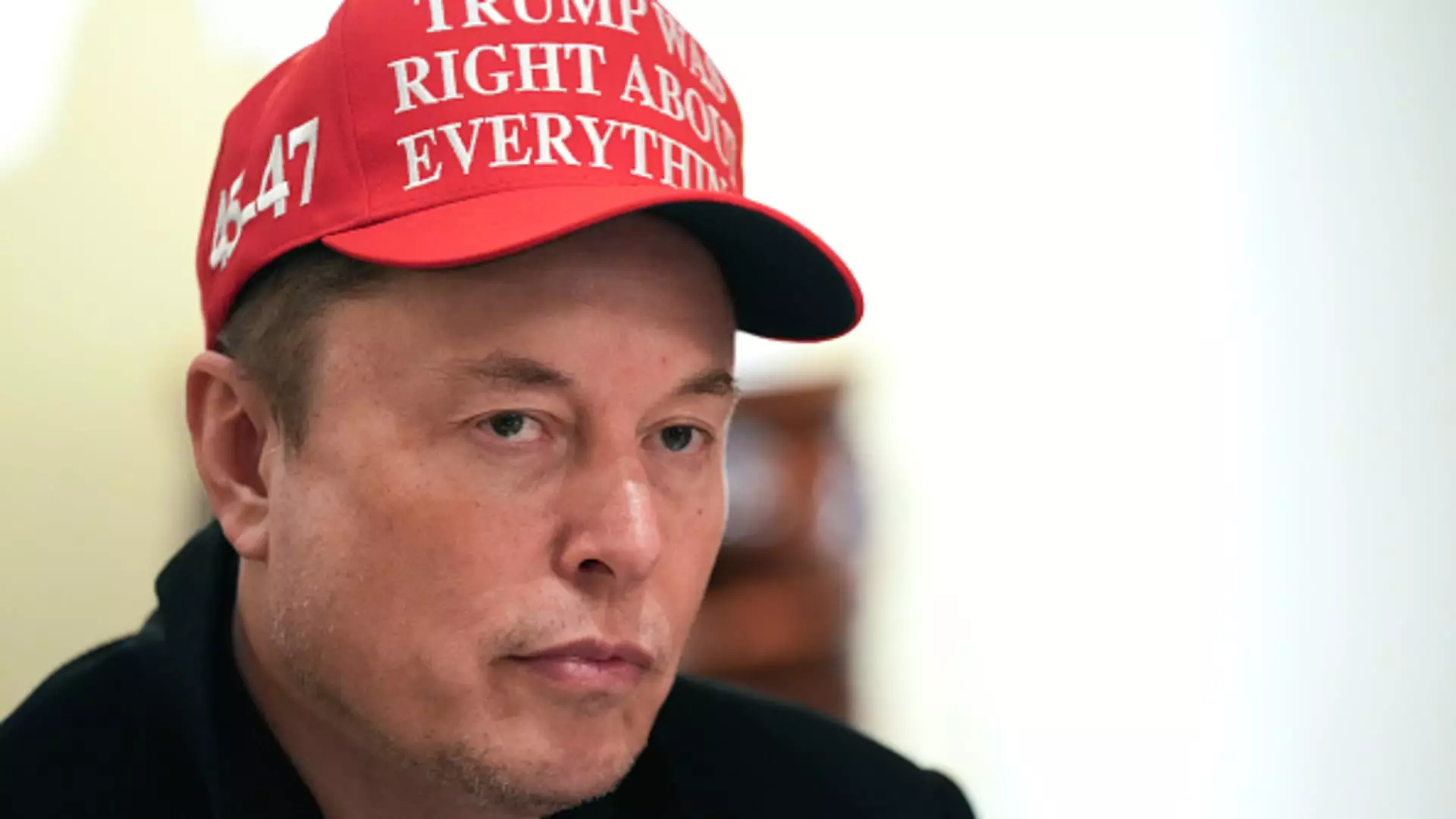In the volatile landscape of the stock market, few narratives are as compelling—or as troubling—as that of Tesla, Inc. The company’s stock recently plummeted nearly 6%, a stark reminder of its ongoing tumult. Closing at $227.50, the shares hover perilously close to their yearly low, reflecting a staggering 44% decline over the last few months. This downturn is not merely about numbers; it indicates broader concerns regarding Tesla’s brand integrity, market performance, and leadership direction.
As the electric vehicle sector grows increasingly competitive, the challenges Tesla faces are compounded by external factors, not least of which is CEO Elon Musk’s dabbling in political affairs. Analysts have raised their voices in alarm, pointing out a “brand erosion” that could have catastrophic consequences for the company’s future. Investors are left to wonder: Is this a tech company, or has it morphed into a political pawn?
The Shadow of Politics
Elon Musk’s controversial involvement with the Trump administration has drawn scrutiny that extends beyond the financial domain. His orchestration of political initiatives—most notably a significant effort aimed at bankruptcy for federal office spaces—has raised eyebrows. Investors are asking urgent questions: How has Musk’s political presence affected Tesla’s brand? With a remarkable 300 investor inquiries revolving around Tesla’s self-driving initiatives and even more questions targeting Musk himself, it’s clear that stakeholder confidence is waning.
Musk’s political forays have catalyzed protests, boycotts, and even acts of vandalism directed at Tesla properties. In a shift noted by observers, the company that once served as a symbol of innovation and environmental progress is now viewed as embroiled in political discord. Such polarization could alienate segments of consumers who are typically staunch supporters of electric vehicle adoption.
A Critical Look at Demand Dynamics
Looking at Tesla’s sales figures offers a bleak picture. Reports indicate a 13% decline in vehicle deliveries year-over-year, leading to projections of slightly reduced revenue for the first quarter. Analysts will be watching closely, particularly given the looming specter of Trump-era tariffs and their potential impact on Tesla’s profit margins. The current narrative echoes a broader truth in the automotive market—customers are becoming increasingly discerning and influenced by nationalistic sentiments, especially as competition churns within China’s electric vehicle market.
One startling figure reveals that only 27% of surveyed consumers would consider purchasing a Tesla, a notable drop from 46% in early 2022. This sentiment shift underscores a reality that Tesla may not so easily brush aside. The question remains whether the brand can withstand this pressure or if it will falter under its own weight.
Competitors and Market Pressures
The Chinese market is proving to be a double-edged sword for Tesla. With increasing competition from domestic brands, analysts warn that Tesla could face diminishing returns unless it pivots its strategy effectively. The potential for “demand destruction” in key markets raises alarms as analysts like Dan Ives speculate on the adverse impacts of Musk’s political narrative on sales. Could this lead to a vicious cycle where Tesla has to rely more heavily on exporting vehicles, pushing down prices and further undermining its premium brand image?
Investors are understandably anxious as the landscape evolves. Oppenheimer’s recent analysis indicates that sales are already impacted by ongoing brand erosion, particularly in Europe and the United States. If perceptions continue to degrade, the implications for Tesla’s market share could be dire, especially if consumers lean toward local alternatives.
Eyes on the Earnings Call
Tesla’s upcoming earnings call could provide some respite or further exacerbate tensions among its stakeholders. A “turnaround vision” from Musk could act as a beacon of hope, but it remains to be seen if he can pivot the discussion from politics back to product. The anticipation is palpable, as any public declarations related to Tesla’s Full Self-Driving (FSD) initiative could either reaffirm investor confidence or lead to further disillusionment.
Analysts are keenly aware that now is a critical juncture for Tesla. With Barclays downgrading its recommendations and a disheartening price target adjustment from $325 to $275, it’s evident that confidence in the brand is faltering. There is an unspoken fear that unless Musk can realign his crowded agenda toward reestablishing Tesla as a leader in innovation and sustainability, the brand risk might continue spiraling downward.
As the narrative unfolds, Tesla stands at a crossroads. The question is no longer about whether it can dominate the electric vehicle market but about whether it can regain the faith of its consumers and investors while navigating the tumult of modern-day politics.

